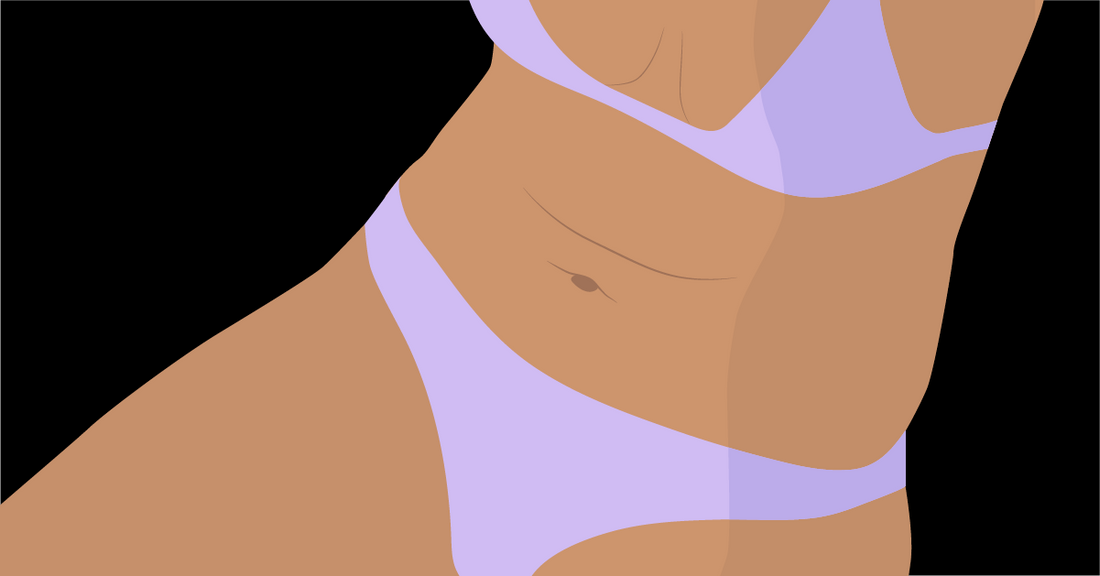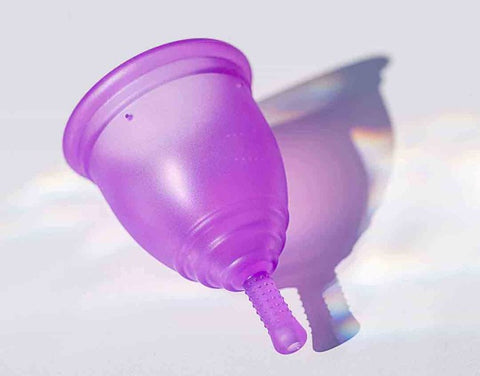This article is written by medical professional Dr. Alice Byram, whom you can read more about at the end of the article.
Period cramps affect people differently. It can vary from slight discomfort to extreme cramps and vomiting which can lead the person who menstruates to stay in bed and have to change their lifestyle. As not everyone experiences the same intensity there can be a lack of understanding for those severely affected which makes the experience even more miserable.
Medically known as dysmenorrhea, period pain can be primary or caused by the period itself, or secondary to another cause. Secondary causes of menstrual pain include endometriosis, which is when the tissue or cells lining the uterus implant themselves elsewhere. To add to the misery, you may also be suffering from headaches, breast tenderness and other period-related symptoms.
Period pain has been around as long as humans have and long before we had ibuprofen and there are many natural remedies around.
Here are four home remedies that actually work to relieve period cramps fast.
1. Heat to ease menstrual cramps
An old fashioned hot water bottle or more modern heating pad applied to the abdomen or tummy helps bring down the pain and also means you relax. That in itself will bring down the pain. You can try as well a cherry stone pillow: This bag of organic cherry stones moulds itself to your body and gently but efficiently relieves menstrual cramps.

2. Yoga against period pain
Yoga doesn't mean that you have to stand on your head but can be just a series of simple stretches. If you practice yoga regularly don’t stop, and even if you feel that yoga is not for you, try a session and learn a couple of poses to use for when you have period pain. And if you do want to stand on your head, do. The myth that you shouldn’t do certain yoga poses has been debunked. Concerns that this would lead to worry retrograde menstruation, or the blood flowing back, as a risk for endometriosis are no longer accepted. This was based on research dating back to 1927.
3. Exercise to help relieve menstrual cramps
Although traditionally people with periods were expected to be less active and in some cases and cultures withdraw from society altogether, the evidence is that regular exercise before and during periods can help alleviate the pain. The type of exercise doesn’t matter and Zumba can be as good as going for a run or a swim. You can absolutely continue with your usual lifestyle and sport using a menstrual cup.

4. TENS or transcutaneous electrical nerve stimulation against period cramps
If you’ve had a baby you might have used a TENS machine during labour to relieve the pain of the contractions. But did you know it can also help with period pain? Delivering low voltage electrical shocks through two electrode sticky pads on your skin, you feel a tingling sensation. It works through interaction with your nerves going to the spinal cord and reducing the pain. It also potentially releases endorphins which are the body's natural painkillers. Should you be interested in this option, try renting a machine before buying one.
Extra Tip: check the period product your using
The period product you use may also be able to relieve some of the discomfort you feel during your period. Some Ruby Cup users tell us that their menstrual cramps have reduced since switching to a menstrual cup.
One of the benefits of using a menstrual cup is that it can also make those heavy period days a lot easier to manage, as one cup can hold as much as three super tampons, saving you the worry about changing your period product quite so often.
Related Post: Tampons vs Menstrual Cups: Which Is the Right Choice for You?
Best Painkillers for period pain
Thankfully we no longer have to bite on a piece of wood to undergo an operation and modern medications can also help with period pain. Ibuprofen taken regularly during the days you have period pain (but no longer than 48h) can really help you maintain a normal life. Should you have asthma, liver or kidney problems make sure you consult with your doctor before you start taking it for the first time. Also, respect the dose on the package. If ibuprofen is not enough, then you can take paracetamol (acetaminophen in the USA) in the hours between the ibuprofen. Make sure you don’t take more than is stated on the packet. If you weigh less than 55kg when you should reduce the paracetamol dose to 500mg 3 or 4 times a day.
When to see a doctor about period pain?
Although period pain is typical, red flags or a reason to consult a doctor urgently include the following:
- When the pain you are experiencing is not natural for you. That can be because it is more intense than usual or in a different place.
- Severe bleeding in quantities which are not normal for you.
- A temperature of over 38C. Although the basal temperature of your body varies during your menstrual cycle, a temperature can be a sign of an infection. Severe shaking or rigors is a reason to ring and get an urgent medical opinion to rule out infection.
- Unusual or new symptoms such as vomiting.
You should also consult your doctor on a less urgent basis if your period pain is causing you to:
- Take significant time off work or impact on your day to day living every month.
- Have signs of anaemia such as tiredness, pale skin or hair loss.
Your doctor can diagnose what is going on and help you find a solution which works for you.
The intensity of period pains can and will vary over your lifetime and a combination of the above remedies will help you find a way of dealing with them. And if binge-watching Netflix on the sofa with a reasonable amount of chocolate for a day is what works, then that is fine too.
_________________________________
Written by Dr Alice Byram Bsc Med & Surg UMA MA Hons MML Cantab
Dr Alice Byram was born in England to a French-British family. Following on from a degree in Spanish from the University of Cambridge, she went to Spain to study medicine. On her return to the UK, she worked in Emergency Medicine for several years before recently returning to Barcelona.
 Your Account
Iniciar sesión
Your Account
Iniciar sesión
 Basket
Basket




